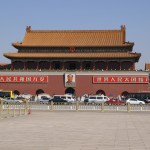
HONG KONG (Dow Jones Investment Banker) – Naming and shaming hasn’t worked to prevent fraud by Chinese companies going public. After a string of cases on Mainland exchanges and internationally, where companies also reported sharply lower earnings within weeks of their IPOs, the China Securities Regulatory Commission (CSRC) is putting a new onus on lead underwriters to weed out less scrupulous sponsors and restore confidence in the markets. It’s a welcome move, albeit a little late.
Brokers will now be required to beef up their investigations of companies and to undertake interviews with the regulator before new issues can be approved.
The changes come in the wake of a critical report by Hong Kong’s Securities and Futures Commission (SFC) in March which highlighted deficiencies with the execution of IPOs by sponsors there, including failures to conduct proper due diligence. An analysis by the South China Morning Post at the end of 2010 had identified eight newly listed companies in Hong Kong out of 59 that had reported significant falls in earnings (from 13.5% to 97.4%) within four to 18 weeks of starting trading on HKEx in 2010.
(Click HERE for April 7 column “HKEx’s Regulator Cheers The Competition”)
Now, in a departure from a more open disclosure regime, the authorities in the Mainland have – rather sensibly – decided to interview IPO sponsors before transactions can be approved by the regulatory committee. The interview comes in addition to the existing, lengthy review process by the CSRC. The CSRC review for IPO applicants used to take up to a year, but has recently been revamped to achieve the same in about half the time, as a deluge of applicants lines up to tap China’s equity capital markets.
Lead IPO brokers in China, whose rules were established six years ago, must have at least two executives acting as sponsors, who must sit examinations on underwriting regulations. Such executives are much in demand as no individual sponsor can work on more than two IPOs at the same time.
According to ChinaVenture, 347 companies went public on domestic markets in China in 2010, raising just below $72 billion. The China Daily reports that the firm with the largest number of sponsors last year was Guosen Securities Co., with 113 professionals. By contrast, UBS Securities and Goldman Sachs GaoHua Securities Company Limited – joint venture brokers partly owned by foreign firms – had only 20 and 11 sponsors respectively.
Recent listings by Chinese companies have been tainted by claims relating to issues including inflated financials and disclosure that has – on occasion – been either lacking or economical with the truth.
Reverse mergers through the acquisition of shell companies on US exchanges have featured prominently, and the US SEC is reportedly conducting an investigation into some 350 Chinese companies listed on the NYSE and on NASDAQ.
But listings on the Mainland have also been affected, particularly following the launch last summer of ChiNext, an independent market in Shenzhen for SMEs, growth companies and those backed by venture capital.
According to article 57 of ChiNext’s rules, issuers and accountants are required to provide a public explanation and apology at the company’s AGM, as well as on websites and newspapers designated by the CSRC, in the event an issuer fails to attain 80% of its forecast profit. Firms also face a 36 months ban from issuing securities if that figure falls below 50%. However, as in Hong Kong, a number of companies that have come to market on the Mainland have still reported profits substantially below disclosed forecasts, with around 100 posting drops in earnings.
So the CSRC is now planning to ask sponsors to explain in detail a company’s prospects prior to forma IPO approval. They will also be required to complete due-diligence check lists for which they will have to take responsibility. The CSRC had previously asked for visits to be conducted on-site at issuers’ production and physical facilities.
These changes, which follow best practice as conducted across the main global financial centers, speak common sense and are most welcome, especially as China’s markets now also prepare to open up to international issuers. But given the scale of issuance on China’s equity capital markets these days, they perhaps come a little late.
(Philippe Espinasse worked as an investment banker in the U.S., Europe and Asia for more than 19 years and now writes and works as an independent consultant in Hong Kong. Visit his website at https://www.ipo-book.com. Readers should be aware that Philippe may own securities related to companies he writes about, may act as a consultant to companies he mentions and may know individuals cited in his articles. To comment on this column, please email [email protected]).
[This article was originally published on Dow Jones Investment Banker on 11 May 2011 and is reproduced with permission].
Copyright (c) 2011, Dow Jones & Company, Inc.
